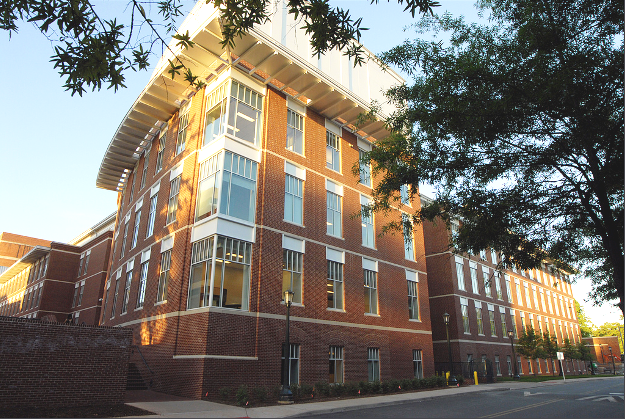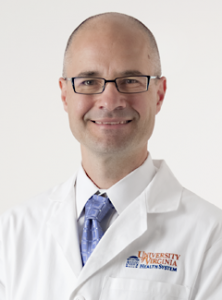Research
THE RESEARCH MISSION:
From Bench to Bedside
Basic, translational, clinical and epidemiologic investigations are vital activities in the Department of Medicine. In FY 2015, total grant support from all funding sources exceeded $41 million, with roughly 54% from the National Institutes of Health (NIH), 26% from foundations (notably several large awards from the Bill and Melinda Gates Foundation), 13% from industry and 7% from other government sources [see sidebar].
Support for Junior Faculty
Of the more than 290 faculty members in the department, approximately 1/3 are on investigative research tracks. The NIH’s “K” awards provide mentored support for research and clinical faculty members in the early stages of their careers; K08 awards are specifically for clinician-scientists to provide protected time for intensive, supervised research experiences. The department currently has nine K08, K23 or K01 awardees (together, they constitute the majority of K trainees in the School of Medicine), as well as four F31/F32 fellowships.

Carter-Harrison Research Building
DOM RESEARCH STATS, FY15
• Total grant support, FY15:
> $41 million
• Funding sources:
– NIH: 54% (approx. $22M)
– Foundations: 26% (notably, Bill and Melinda Gates Foundation, with several large awards to Infectious Diseases & International Health)
– Industry: 13%
– Other government sources: 7%
• Total NIH grants: 69
Including:
– 33 R01s
– 9 K awards
– 6 T awards (training grants)
– 3 F31/F2 fellowships
The department’s K-awardee faculty mentoring program, launched by Vice Chair for Research Eric Houpt, MD, hosts regular meetings for networking and sharing ideas and needs among this cohort. At a K symposium in May 2015, several participants presented current research and upcoming grant plans, and two of them — Joey Gigliotti of the Division of Nephrology (“Defining the Spleno-Renal Axis in Murine Hypertension”) and Chelsea Marie of the Division of Infectious Diseases and International Health (“The Role of Host Inflammasomes in Amebiasis”) — received Young Investigator awards from the department. Additionally, The Division of Infectious Disease’s Scott Heysell, MD, was awarded the Dean’s Award for Excellence in Research in 2015.
The department has sought and received funding from the School of Medicine for programmatic support of K awardees and their mentors.
Opportunities for Collaboration
The annual Carey-Marshall-Thorner Scholars and Research Day, held each May, provides a forum for Department of Medicine residents and fellows and their faculty mentors to present their research, cultivate collaborative relationships and celebrate the breadth and depth of scholarly exploration in the department. Associated events include Grand Rounds, oral presentations by trainees and new faculty members, a poster session open to all, an awards ceremony, and reception. This year’s awardees are listed in the sidebar.
DEPARTMENT OF MEDICINE
2015 AWARDS FOR RESEARCH & MENTORING
Outstanding Research:
• Stacey Anderson, MD
• Kenneth Bilchick, MD
• Jie Liu, PhD
• Swami Swaminathan, MBBS
• Mami Taniuchi, PhD
• Angela Taylor, MD
Outstanding Mentorship:
• Kline Bolton, MD
• Coleen McNamara, MD
• William Petri, MD, PhD
• Richard Santen, MD
Prolific in Publications
During FY 2015, Department of Medicine faculty produced over 400 peer-reviewed publications on a broad range of clinical and research topics, from emerging local problems to advanced technologies in cardiac imaging, to issues of global importance, such as childhood malnutrition.
Of the 400+ publications, DOM residents and clinical and postdoctoral fellows produced an impressive 79. The department’s “seed funding” for resident-faculty research teams, awarded during the second and third year of residency, is an important resource for nurturing the work that results in this high level of scholarly output.
The department’s research efforts are facilitated by a number of institutional resources, including a series of core laboratories that provide a wide range of technical and analytical skills, as well as access to sophisticated instrumentation applicable to the research activities of many different investigators. The services provided by these laboratories are available to all investigators within the School of Medicine and more broadly to members of the University.
Human Investigation Committee plays a vital role in the review and oversight of all studies involving human subjects, and the University’s Animal Care and Use Committee reviews and approves protocols involving vertebrate animals, while the Institutional Biosafety Committee approves protocols involving infectious agents and laboratory safety procedures.
Read more about research being conducted by investigators in the Department of Medicine:

